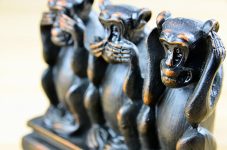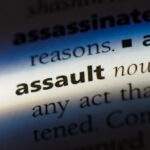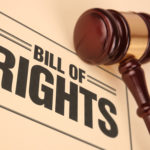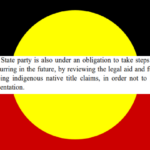Grand Mufti Sues News Corp for Defamation

Dr Ibrahim Abu Mohammed, the Grand Mufti of Australia, has filed a defamation suit against Sydney’s Daily Telegraph over a series of news stories the paper published about him last year.
On 18 November, just days after the Paris terrorist attacks, the Telegraph ran a front page that depicted Dr Mohammed covering his eyes, ears and mouth, with the caption: “Sees no problems, hears no concerns, speaks no English.”
The stories linked to the cover went on to claim Dr Mohammed was “an apologist for the terrorist attacks in Paris”, a supporter of “violent Islamic holy war” and had deliberately refused to attend a vigil after the attacks.
However, Dr Mohammed had in fact issued a statement two days after the 13 November attacks saying he “mourn[ed] the loss of innocent lives” and conveyed his “deepest condolences to the families and friends of the deceased”.
The statement also pointed to what he believed were the “causative factors” of terrorism, including “racism, Islamophobia, curtailing freedoms through securitisation,
duplicitous foreign policies and military intervention”.
The Australian National Imam’s Council said in a statement that the news outlet had shown a “complete failure to engage with the grand mufti or his representatives”.
“In the circumstances, the Grand Mufti has been left with no option but to commence civil proceedings against News Corp for damages arising from the publication of the article.”
The lawsuit seeks general and aggravated damages, and asks for the publications to be taken down off the internet.
News Corp is yet to comment.
Defamation and the Media
NSW Defamation law seeks to strike a strange balance between the public interest in publishing news stories and the rights of the individual against unfounded accusations.
Threats of defamation lawsuits have been used in the past to suppress information that might be in the public interest. In a recent interview with us, the President of the NSW Council for Civil Liberties, Stephen Blanks, spoke about a case he had worked on where a Government Department used a defamation threat to try and stop the publication of a book exposing its regulatory failings.
On the other hand, defamation lawsuits, like those that have resulted from inaccurate reporting, have been shown to play an important role when it comes to protecting individuals against the publication of inaccurate and damaging information.
In 2014, a woman (known by the alias ‘Ms K’) successfully sued the Sydney Morning Herald after they incorrectly identified her as being a perpetrator of sexual abuse at a boys’ school in Sydney. However, in that instance, the failure appeared to be more attributable to lazy reporting than a malicious attack on her character.
Most people know you can’t believe everything you hear or read in the media, but that doesn’t stop it from influencing our lives. Inaccurate reporting can skew our perceptions of reality, create confusion and lead to false conclusions being drawn.
However, unless a person sues for defamation, there are no legal consequences for incorrect or biased reporting.
Defamation in NSW
What constitutes defamation differs significantly between Australian jurisdictions. Laws governing defamation in NSW are primarily found in the Defamation Act 2005 (NSW).
Defamation is said to have occurred when one person communicates, by words, photographs, video, internet, illustrations or other means, material which could affect or damage the reputation of another.
A person bringing a claim of defamation must prove the following four things:
- The communication has been published by the defendant;
- The communication has been published to a third person;
- The communication identifies or is about the plaintiff; and
- The communication is defamatory.
However, the plaintiff does not need to prove that they actually suffered damage as a result of the publication; although the lack of actual damage will affect the amount of any award.
The Court is then required to look at the alleged defamatory material and make a judgement as to whether it is defamatory. It does so by applying the following tests;
- Whether it is likely to injure the reputation of the plaintiff by exposing him or her to hatred, contempt or ridicule,
- Whether it contains a statement about the plaintiff which would tend to make the plaintiff be shunned or avoided, and
- Whether it has a tendency to lower the plaintiff in the estimation of others.
In instances where defamation is proven, there are a range of defences under both common law and the Act itself.
If you are accused of defamation, defending a lawsuit can be a costly process – especially against larger opponents with more money to spend on lawyers. Often, those accused of defamation are forced to apologise and withdraw their statements, even if they are true, or settle out-of-court.
Receive all of our articles weekly
Author






